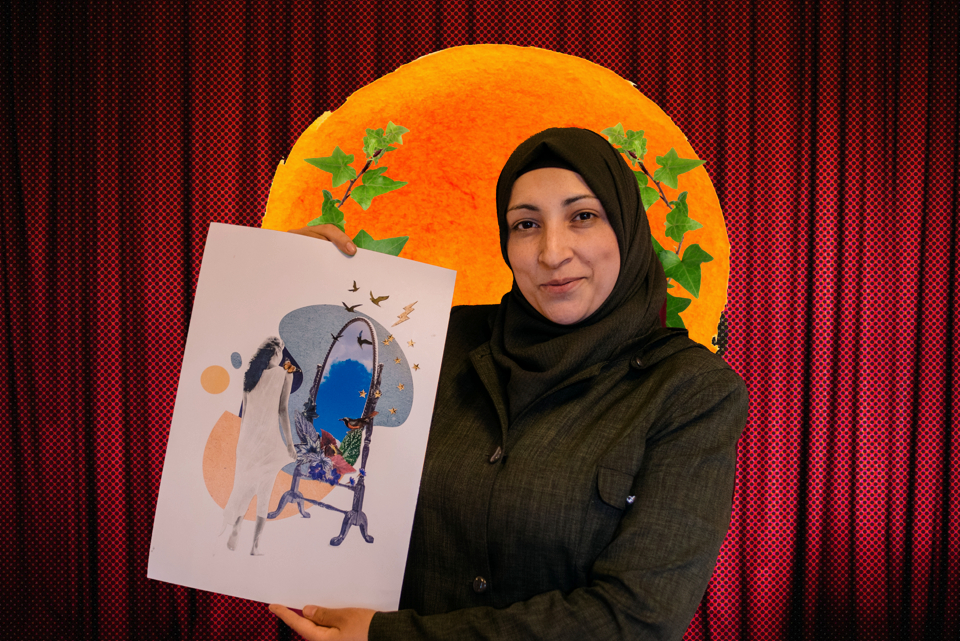In the words of Mürfet Cacul: “I want people to think of Syrian women as open to change, curious to learn, and lovers of communication”
Date:

Mürfet Cacul, a mother of three boys, escaped Syria to Gaziantep, Turkey in 2013. Having been exposed to various types of violence in the past, she joined the “Creating a Violence-free World” workshop held as part of the 16 Days of Activism campaign. Cacul expresses her views about how dialogue changed her attitude to violence. She also focuses on the positive side of moving to Turkey, especially having the chance to practise her rights as a woman. The refugee-focused 16 Days of Activism campaign in Turkey is implemented by the UN Women Refugee Response Programme in partnership with the Association for Solidarity with Asylum Seekers and Migrants’ (SGDD-ASAM). It is financed by the governments of Japan and Norway.
![]()
I have a conservative background like many other Syrian women. I was 17 years old when they married me off, I could not even finish high school. Although my parents tried to provide me every opportunity, the real issue is about the general climate towards women in our culture. Women are not appreciated when they want to make their own choices, go for higher education or marry somebody of their own choosing. There is this constant pressure around how women should behave. Before the workshop, I was unsure about how much I should share about my experiences of violence. The workshop opened my eyes and helped me see violent occasions more clearly. For example, the fact that my right to access education was taken from me is a matter of violence against women. So, this is the form of violence that I want to create more awareness about in my Syrian community. We should understand more about the different forms of violence and not just focus on the visible side of it. Even though some Syrian women have not been subjected to physical violence, they may have experienced other forms of violence. I am a person who has been subjected to various forms of violence. After participating in awareness-raising events, I’ve seen that there have been serious improvements in my communication skills. For example, I can express myself better in my relationship with my husband. I can change my husband’s point of view.
Even my boys noticed this, for example, when there is a dispute, they say, ‘let's talk mum.’ This is because this is what my husband and I say when we want to discuss an issue: ‘let’s talk.’ A culture of dialogue has developed in our lives, which I think is a very important development in a family where three boys are growing up. Problems can be resolved through dialogue without reaching the point of violence.
I have started to change ever since we moved to Turkey. When I was in Syria, it was out of question for me to have an active social life, but since we moved here, I have to go out alone to handle my own business. This made me feel more comfortable and self-sufficient. This is an opportunity. I used to be afraid to leave the house alone like a scared cat, but I started going out and attended trainings on women's rights, advocacy, gender equality, and violence provided by SGDD-ASAM. As a founding member of the ‘Tomorrow Women's Committee,’ I am also vocal about women’s rights, and I am determined to encourage women to seek help.
I want people to think of us, Syrian women, as open to change, curious to learn, and lovers of communication. We just need to learn and teach each other to overcome difficulties particularly around violence. This will help Syrian women to reach their potential.”